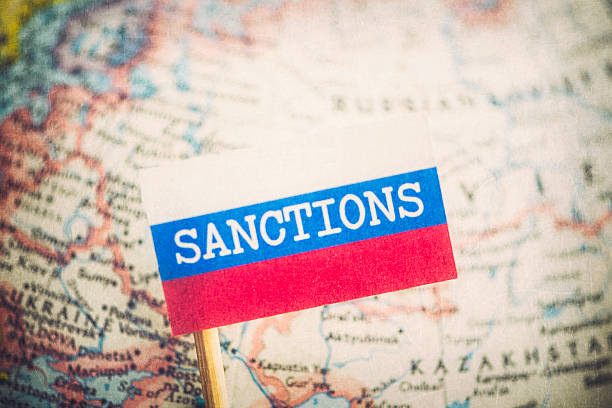Let us undertake your cares
Corporate consulting and services in Estonia since 1994
Accounting advisory tailored to your needs
Crowe provides global reach on a personal scale
Legal Services
Larssen CS offers professional legal consulting / advisory, and competent and timely assistance on a wide range of issues. Our experienced lawyers will help you to deal with both routine business and strategic development.
Corporate Services
Our company offers a wide range of corporate solutions for legal entities. Well organized and structured workflow management is an integral part of a successful business. Our experts will suggest the most suitable operating model for a specific field of activity or project that would ensure the highest efficiency and safety of the partnership.
Bank Accounts
Opening accounts in banks and payment systems in EU countries and beyond. Free consultation on choosing the most suitable solution for legal entities and individuals. Assistance in the preparation of documents. Accompanying the process of opening an account from preliminary approval to the final result.
Taxes
Successful companies take tax implications into consideration before making business decisions in order not to pay more taxes than prescribed by law. The available options for saving money can be left unattended, especially if a company is operating on new markets or under new jurisdictions.
Accounting
We offer to our customers accounting services for all forms of businesses possible in Estonia and in other jurisdictions.
News
Who we are?
Larssen started by providing company registration and administration services in Estonia and abroad. It started in August 1994. Thus, today we are already, or still, 28 years old.
Over the years, we have achieved a leading position in the Estonian market and have significantly expanded the range of services provided.

Our team members
Success of our company first and foremost is the achievement of the teamwork of our professionals, who render a service of highest quality not only at a local level, but also abroad. Our personnel aim at being leaders in their field, offering their experience and skill, providing unique solutions for client’s requirements satisfaction.
It is of primal importance for us to recruit the very best for every spectrum of our activity, in order to offer you services of superior quality. We appreciate team-based work system and outer directed, sociable personnel.
If you want to join our team, please send us your CV by e-mail: info@larssen.ee


Frequently Asked Questions
The Republic of Estonia is situated in the northern Europe on the coast of the Baltic Sea. In the east it is bordered by Russia, in the south – by Latvia. In the north, in the Finish gulf, it shares its sea border with Finland, in the west – with Sweden. The northern and western parts of Estonia are washed by the waters of the Baltic Sea. The population of Estonia is around 1.3 million of people.
The grounds of the Estonian State System are laid down in the Constitution of the Republic of Estonia that was approved at the referendum on the 28th of June 1992 and came into force on the 3rd of July 1992.
Estonia is a parliamentary republic. The legislative power of Estonia is in the hands of the State assembly i.e. the parliament of the republic (Riigikogu in Estonian) that is elected for the four year term.
The president of the republic is both the head of the State and the Supreme Commander In Chief of the Defense Forces of the Republic.
The judicial power is exercised by courts of law.
After the reinstatement of independence Estonia is still one of the most progressive developing economies in the Central and Eastern Europe, to a great extent owing to the success of its socio-economic reforms.
There is a liberal and market economy, and the government are aspiring towards balanced budget and low level of the national debt.
What is the legal system of Estonia?
The legal system of Estonia belongs to a euro-continental system of the Roman-Germanic branch, and is traditionally divided into private, common and, criminal law.
The Estonian legislation comes in line with common European legal regulations.
Commonly accepted principles of international law are an inalienable part of the Estonian legal system. When giving judgment a judicial precedent is also taken into consideration.
Commonly accepted principles of the international law and international treaties with binding force are an inalienable part of the Estonian legal system. When giving judgment a judicial precedent is also taken into consideration.
What is the judicial system of Estonia?
The judicial system of Estonia is divided into three stages:
The first authority courts are the city, circuit, and administrative courts. City and administrative courts examine civil, criminal and administrative cases. Actions are examined by judges single-handedly or in session with one judge and two assessors.
The second authority courts are three circuit courts acting as courts of appellation for reviewing decisions of the first authority courts. Circuit courts are divided into three boards for examining civil, criminal, and administrative cases. Actions of the second authority are examined by three professional judges.
The Supreme Court examines Cassational pleas, review pleas, pleas of supervision of legal proceedings. The Supreme Court consists of joint assembly, civil, criminal, and administrative boards as well as constitutional board that examine petitions of appeal of constitutional rights.
There is also a possibility of an alternative settlement of disputes (arbitrary and conciliatory records of a court.)
ARBITRARY COURT
The law of arbitrary court of the Estonian commercial and industrial chamber came into force on the 14th of august 1991.
Arbitrary court examines cases on the grounds of a petition if:
- Parties agree to resolve a dispute in the arbitrary court;
- A petitioner filed an action and a respondent conducted in a way that can be interpreted as an agreement of a dispute settlement within the framework of the jurisdiction of the arbitrary court;
As a whole the business climate of Estonia is characterized by free enterprise and trade in accordance with the EU practice. Many Estonian companies are subsidiaries of European, especially Scandinavian companies.
Monopolies are non-existent in the economy, with the exception of some strategic sectors (railways, energy production and distribution) that partly or entirely belong to the state.
Throughout the entire period after the reinstatement of independence the aspirations of government have been directed towards gaining long-term economic growth in the Economic and Fiscal policies. Estonia joined the Euro zone on the 1st of January 2011.
The majority of investments and business projects are centered in Tallinn and its outskirts, government, however, makes its best to assist in the development of all regions of the country.
The Bank of Estonia (Eesti Pank) is an independent central bank. The main aim of the bank is to take part in the Economic policy of Estonia by means of carrying out an independent credit and monetary policy, consulting Government and conducting international cooperation.
The bank of Estonia is responsible for circulation of money in Estonia.
Estonian banks have achieved a significant success in the electronic systems and offer their client a wide range of services. Active cooperation with the biggest banks and operators of mobile services favored the elaboration of different innovative solutions for clients.
The most common form of business is companies with limited liabilities. Limited Liability Company (Osaühing) and Joint Stock Company (Aktsiaselts) are some of them.
The differences between the two are in the fact that the activities of a Limited Liability Company are less regulated than the Joint Stock Company’s activities.
Limited Liability Company (Osaühing)
Llimited Liability company (further LLC) is an enterprise with limited liability where owners are liable for obligations to the amount of the invested capital. It is suggested that it should be established for the purposes of enterprise with small demands in capital and a relatively small number of shareholders.
In cases with a small amount of participants it’s preferable to establish LLC. It is the case when an enterprise management is much easier and there is an opportunity to manage it with fewer people. However, when choosing a form of enterprise it is vital to consider the long-term strategy and prospects of progress.
The minimal sum of share capital is 2500 euro; the maximum amount is unlimited. Each shareholder can possess one share of LLC with the minimal cost per share of 1euro. When making a decision each shareholder has a number of votes commensurable to the size of their share.
Establishment
A limited liability company can be established by one or more persons (individuals or legal entities), including residents of foreign countries. For the establishment of LLC founders make a shareholder’s agreement certified by a notary. As an appendix to the shareholder’s agreement, founders adopt a Articles of Association of LLC.
Payment for shares
Shares may be paid by monetary contribution to the bank account of a LLC or by non-monetary contribution, which can be in the form of any item, assessed monetarily and passed to the PLC. If the amount of the capital is less than 25000 euro and the value of a non-monetary asset exceeds 1/10 of capital, or if all non-monetary assets, in total, make up more than a half of share capital, the evaluation of non- monetary payment must be certified by an auditor. In other cases the evaluation of non-monetary assets by the contributor and management board is sufficient.
As of the 1st of January 2011 it is possible to establish a LLC by resident-individuals with postponed capital payment.
Management of a Limited Liability Company
The supreme body of LLC management is a shareholder’s meeting that determines common areas of LLC development.
The activities of LLC are organized by the management board. Each member of the board has a right to represent LLC solely if only his rights are not limited by Articles of Association. This limitation is valid for third parties only if there is a relevant notice in the Companies Registry.
Liability
A member of the management board must fulfill his obligations with sufficient efforts. Members of the board as well as members of the supervisory board, (if such is established) are liable for damages caused to the company, if they carry out their duties with negligence or deliberately cause damage to the company.
Alienation of shares
A share can be easily alienated. A transaction of a share alienation and encumbrance (for instance mortgage, encumbrance of right of enjoyment) must be asserted by a notary. The preemption right for other shareholders could be prescribed by the statute.
Joint-stock company (Aktsiaselts)
Joint-stock company (further JSC) is a commercial entity with limited liability the capital of which is divided into shares. It is recommended that JSC be established for commercial projects with a big demand for capital as well as with a big number of shareholders.
For some certain types of activities establishing of JSC is obligatory. For instance – banking, insurance etc.
The minimal amount of JSC capital is 25000 euro. The maximum amount of JSC capital is unlimited. The minimum value of a share is 0.1 euro. Each share gives one vote at a general meeting.
There is a possibility to issue different types of shares with different rights.
Establishment
JSC can be established by one or several persons (legal entities and individuals) both residents of Estonia and residents of foreign countries.
There are two ways to establish a JSC:
1) Establishment without subscription to shares (the most commonly used form of establishment.)
2) Establishment by share subscription(rarely used)
The difference between these two forms is in the fact that the establishment with share subscription already presupposes the creation of a public company with many owners. At the same time the establishment of such JSC requires much time and is more costly.
When establishing a JSC shareholders make a notarized Foundation Agreement.
While establishing a JSC with share subscription it is important that the date and the place of founding meeting and the date and the place of subscription for shares be marked in the articles of incorporation.
As an appendix to articles of incorporation shareholders ratify Articles of Association of JSC.
As of 01.02.2001 shareholders book of each JSC is kept by the Central depository of shares, so each JSC established must first register their shares in the Central securities depository.
Payment for shares
Shares can be paid by a monetary contribution to a company bank account or by a non-monetary contribution, in the form of an item or right, which could be monetarily evaluated and passed to JCS. Evaluation of a non-monetary deposit must, by all means, be certified by an auditor.
JSC management
As JSC may have a big number of owners and higher capital than other forms of companies, its managerial structure is also more complicated. Apart from stockholders meeting and the management board, a supervisory board with at least three members must be appointed. A supervisory board is elected by stockholders on general meeting and controls the management board.
Alienation of Shares
Shares can be freely alienated, and in addition, they can be encumbered by the right of use. The preemption right for other shareholders could be prescribed by the JSC Articles of Association. Moreover, the restriction and prohibition on the encumbrance of shares can be provided for in the JSC Articles of Association. In the process of alienation shares must be transferred from seller’s security account to buyer’s securities account. The transfer of ownership is also registered in the Central Securities Depository.
Liability
A member of the board of directors must fulfill his obligations with sufficient efforts. Members of the board as well as members of a supervisory board are liable for damage caused to the company if they carry out their duties with negligence or deliberately cause damage to the company.
Unlimited partnership
It is a procedural and institutional form with unlimited liability with two of more participants. Participants are liable to the full extent for the obligations of a partnership. There is no minimal capital requirement.
Limited liability partnership
This form of partnership requires that at least one participant (a general participant) should be fully liable for obligations of a partnership. The general participant is fully liable for obligations of a partnership while a participant with limited liability is liable to the extent of his personal assets in the partnership. In such a company a participant with limited liability has limited managerial rights.
Entrepreneur-individual
An entrepreneur must be registered in the Commercial Register by submitting a notarial application. He is liable for his or her obligations with all of his or her assets.
Branches of international companies in Estonia
An international company can set up a branch In Estonia. The branch is not a legal entity but must be registered in the Commercial Register. The head office is liable for actions of the branch. Brach must have at list one member of the management board. The head office carries out accounting of the branch according to the Estonian legislation.
Transfrontier companies
The EU legislation applicable in Estonia provides an opportunity to register such forms as European Company (Societas Europea), European Co-operative Society, European Economic Interest Grouping, European Grouping of Territorial Co-operation.
Partnership
The Law of obligation acts provides for an opportunity to create a partnership for the purpose of joint activity. Such partnership is not a legal entity and is not a subject to registration.
Establishing a company is a notary procedure. A procedure of e -establishing of a company is an alternative that residents of Estonia, Argentine, Portugal, Finland, Belgium, Latvia, and Lithuania can use.
The requirements for document
Submitted documents must be made in the Estonian language and certified by Notary. Documents submitted in a foreign language must have an official translation into Estonian and legalisation. Legalisation is not necessary if there is an agreement of mutual legal assistance (Poland, Russia, Ukraine, Latvia, and Lithuania).
Electronic service
The law of digital signature determines the terms of the use of digital signature. The portal of registration of companies provides an opportunity for submitting documents digitally.
Digital service is one of the advantages of non-paper document management.
Paper and electronic documents submitted to the Commercial Register, including applications, are automatically transformed into digital form.
Data protection act
Personal data protection act regulates the processing of personal data, sets up terms and order of personal data processing.
Accounting
The duration of financial year is 12 months. In case the date of the beginning of a financial year changes, or in other cases provided for by law, the financial year of a company may be shorter or longer than 12 months, however, it must not exceed 18 months.
At the end of each financial year, a person responsible for accounting must prepare an annual report, consisting of financial statements, management report, audit report (if it is required) and the decision of allocation of profits.
A scanned copy of a signed annual report must be submitted to the Commercial Register within 6 months after the end of the financial year.
Audit/Review
The necessity for audit arises if two of three following criteria are met.
1. Revenue or income over 4 000 0000 euro
2. Total assets over 2 000 000 euro
3. Number of employees over 60
Or if one of three following criteria are met.
1. Revenue or income over 12 000 000 euro
2. Total assets over 6 000 000 euro
3. Number of employees over 180
The necessity for review (a simplified version of audit) arises if two of three following criteria are met.
1. Revenue or income over 1 600 000 euro
2. Total assets over 800 000 euro
3. Number of employees over 24
Or if one of three following criteria are met.
1. Revenue or income over 4 800 000 euro
2. Total assets over 2 400 000 euro
3. Number of employees over 72
General information
The Estonian taxation system became famous since 2000, when taxation of Estonian residents – legal entities by corporate tax was abolished. It is simple and liberal. Income tax has only one flat rate. The system of taxation is established by tax law.
Existing state taxes:
– Income Tax (from the income of non-resident legal entities and resident individuals)- 20%
– Value Added Tax(VAT): 20% as of the 1st of July 2009
– Social tax:33%(20%- social insurance and 13%-medical insurance)
– Unemployment insurance Tax (as of 0.1.01.2013): 0,8% from an employer +1,6% from an employee
– The funded pension deposit- 2%
– Excises(tobacco, alcoholic beverages, fuel, transport, packaging );
– Gambling Tax;
– Land Tax
– Heavy Vehicle Tax
Tax payers
Tax payers are residents and non-residents, both legal entities and individuals. The term legal entity includes a company, a public entity, a non-commercial organization or a fund, a permanent establishment.
A legal entity is the resident of Estonia if it is established in accordance with the Estonian legislation and registered in Estonia. The branch of a foreign company is considered as a permanent establishment.
An individual is the resident of Estonia if it has a permanent place of residence in Estonia or stays in the country for more than 183 days during any of the consecutive 12 calendar months.
The registration requirements
Tax payers registered in the Commercial Register (a company, a branch and etc.) will automatically be included in the taxpayer’s list. Non-residents may be registered by tax and customs authorities under certain circumstances (for instance, a company acting as an employer or having permanent establishment.)
In order to obtain VAT number a separate registration is needed from the tax and customs department of the Republic of Estonia. To this end a company must have (or it must arise in the near future) turnover in the meaning of value added tax act and a place of business in Estonia. A tax supervisor has the right to ask for the confirmation of it.
A company, non EU resident, in order to have VAT registration, must either register permanent establishment or appoint a tax representative.
From 1 July 2014 the amendment of the Taxation Act establishing the employment register, where all the natural and legal persons providing the work are required to register the persons employed by them with the Estonian Tax and Customs Board will enter into force. Since that moment the employers will not be required to submit the data on the employed persons to the Estonian Health Insurance Fund.
Taxation of the permanent establishment
A permanent establishment is a place of business by means of which a non-resident entirely or partly carries out an economic activity in Estonia. It also arises when there is a representative of a non-resident who is entitled to carry out and repeatedly carries out business transactions in Estonia.
All expenses and other payments made by the permanent establishment not related to its business activities, made through or on account of the income, are subject to income tax. Special benefits, gifts, and donations are also subjects to taxation.
Avoiding double taxation
Estonia has signed an agreement for the avoidance of double taxation with Belorussia, Canada, China, Czech Republic, Denmark, Finland, France, Germany, Iceland, Ireland, Italy, Kazakhstan, Latvia, Lithuania, Moldova, Netherlands, Norway, Poland, Sweden, Ukraine, USA, UK, and other countries (total of 51). The number of agreements is on the increase.
Income tax (residents)
Is there an income tax in Estonia?
There is no tax in Estonia on income received by legal entities – tax residents of Estonia.
A company’s profit is subjected to taxation only when the profit is distributed among owners. It also occurs in case of company’s capital reduction (if it was increased by fund emission), during the allocation of property after liquidation (in the part that exceeds capital payment). Expenses and other payments not related to business activities, special benefits, gifts, and donations are also subject to income tax.
An income tax is charged on amount paid out.
If Estonian taxpayer receives an income in a foreign country during the taxation period then the income received in that foreign country is added to the taxable income, and an income tax paid or withheld from this income in a foreign country is credited from tax amount payable in Estonia. Tax credit could not be applied in case if it is imposed in foreign country on income which is not subject to tax in Estonia.
If an income tax rate in a foreign country is higher than it is in Estonia the sum of an overpaid income tax is not compensated.
Estonia as a holding jurisdiction
Special clause in the Income Tax Law makes Estonia attractive as holding jurisdiction.
In accordance with this clause, both corporate tax and withholding taxes are not payable in case if the income is received in form of dividends from a tax resident company of a Contracting State or the Swiss Confederation (except for companies located within a low tax rate territory) and at least 10 per cent of such company’s shares or votes belonged to the company at the time of deriving the dividend;
Exemption condition also exists for income received from permanent establishments of Estonian companies in foreign jurisdictions in case if the income tax has been charged on such profit in foreign jurisdiction.
Income tax is also not payable by the natural persons – tax residents in Estonia if income tax has been paid on the share of profit on the basis of which the dividends are paid or if income tax on the dividends has been withheld in a foreign state.
Above condition makes Estonia attractive as a place for tax residency for natural persons in some sertain cases.
Income tax (non-residents)
So called the principle of the income source comes into effect in relation to non residents. Non residents pay taxes only on income derived from Estonian sources.
Dividends – no withholding tax;
Interest – no withholding tax in case if interest rate does not exceed the market rate. In case if the rate is higher than market rate, the tax is payable from the difference between the market rate and the interest rate paid.
Royalty – the tax rate is 10 %, however, it may be less according to double tax treaty conditions or may be nil according to the EU directive (Interest and Royalty Payment Directive).
The capital gains – the tax rate is 21% for resident individuals, and 0% for resident legal entities and non-residents.
Income tax is charged in case of alienation of shares in a company, contractual investment fund or other pool of assets of whose property, at the time of the transfer or during a period within two years before transfer, more than 50 per cent was directly or indirectly made up of immovables or structures as movables located in Estonia and in which the non-resident had a holding of at least 10 per cent at the time of transfer.
Salary – the tax is payable if the place of employment is Estonia or in case of payments to members of governing bodies.
Value Added Tax (VAT)
The standard VAT rate is 20 % on the taxable value.
The taxable persons are entrepreneurs including legal entities of public law, state, rural and city organizations.
Persons whose turnover exceeded 16000 euro as calculated from the beginning of the calendar year must register for VAT purposes in the Tax and Customs Board. The taxation period is one calendar month. VAT returns must be submitted to the Tax and Customs Board by the 20th day of the month following the review month.
The reduced rate is for: books, medical equipment, pharmaceutical products, periodicals, excluding erotic, pornographic and commercial, and accomodation services.
The land tax
The land tax is determined on the grounds of the land assessed value. The tax land is paid by a land owner or in some cases by a land user. The land tax rate is 0.1-2.5% on the assed land value annually. The tax rate is set by the local self-government not later than the 31st of January of each taxation period (calendar year).
Local Taxes
Local taxes are imposed by standard legal acts on the part of municipal foundations, rural or city councils in accordance with Local Tax Act.
The following local taxes may be imposed: sales tax, boat tax, advertisement tax, road and street closure tax, motor vehicle tax, a tax on keeping animals, entertainment tax.
Social Tax
Social Tax is a financial liability imposed on a taxpayer for the purpose of obtaining income necessary for the payment of state pensions and medical insurance.
Social Tax is paid by legal entities and individuals, non-residents with the permanent establishment in Estonia, State and local authorities and other persons working in Estonia who execute payments designated in the Social Tax Act such as salaries, payments to the members of the board of directors, special benefits, entrepreneurial income of sole traders, renumeration, paid to individuals on the grounds of an agreement of service.
The social tax rate is 33% on the taxable amount.
Customs duties
A custom duty is a charge formed on the grounds of a customs tariff. Customs duties are charged form the product’s cost imported to the customs territory of Estonia. A payer of customs duties is an importer. Customs duties are paid according to the procedure and within the time frame set by the customs policy.
Alcohol, tobacco, fuel and electricity excise
Excise is levied on alcohol, tobacco, fuel and electricity in conformity with the Alcohol, tobacco, fuel and Electricity Excise Duty Act
Alcohol excise rates are set in the Act and are different for various types of alcohol.
Tobacco excise is levied on tobacco products, revenue stamps on tobacco products. The excise rate for cigarettes consists of a fixed rate for a thousand cigarettes and a commensurate rate calculated on the grounds of a maximal retail price of a cigarette.
Fuel excise is levied on motor fuel, motor oil and fuel oil produced in Estonia or imported to Estonia. Excise rates are given in the Act appendix.
Packaging Excise
Packaging excise is levied on products packaging released into circulation in Estonia imported or re-imported into Estonia. Excise rates are given in the Act appendix on the packaging excise.
Gambling Tax
The tax is imposed on amounts received as bets from a totalizator or bets; gambling tables, gambling machines, that are used to organize gambling activities; amounts received as bets from gambling not held at gambling tables and gambling machines; amounts received from selling lottery tickets in lotteries carried out in conformity with law. The gambling tax is paid by organizers of gambling games. Rates are given in the Gambling Act.
Sources of tax law
The sources of the Estonian tax legislation are:
– Taxation Act
– Alcohol, Tobacco, Fuel and Electricity Excise Duty Act
– Packaging Excise Duty Act
– Gambling Tax Act
– Income Tax Act
– Social Tax Act
– Funded Pensions Act
– Unemployment Insurance Act
– Land tax Act
– Customs Act
– Local tax Act
– State Duty Act
– Value added tax Act
Lorem ipsum dolor sit amet consectetur adipisicing elit sed do eiusmod tempor incididunt ut labore et dolore Lorem ipsum dolor sit amet, consectetur adipisicing elit, sed do eiusmod tempor incididunt ut labore et dolore magna aliqua.
Carolina Monntoya
Managing DirectorLorem ipsum dolor sit amet consectetur adipisicing elit sed do eiusmod tempor incididunt ut labore et dolore Lorem ipsum dolor sit amet, consectetur adipisicing elit, sed do eiusmod tempor incididunt ut labore et dolore magna aliqua.
Peter Rose
ManagerLorem ipsum dolor sit amet consectetur adipisicing elit sed do eiusmod tempor incididunt ut labore et dolore Lorem ipsum dolor sit amet, consectetur adipisicing elit, sed do eiusmod tempor incididunt ut labore et dolore magna aliqua.





































